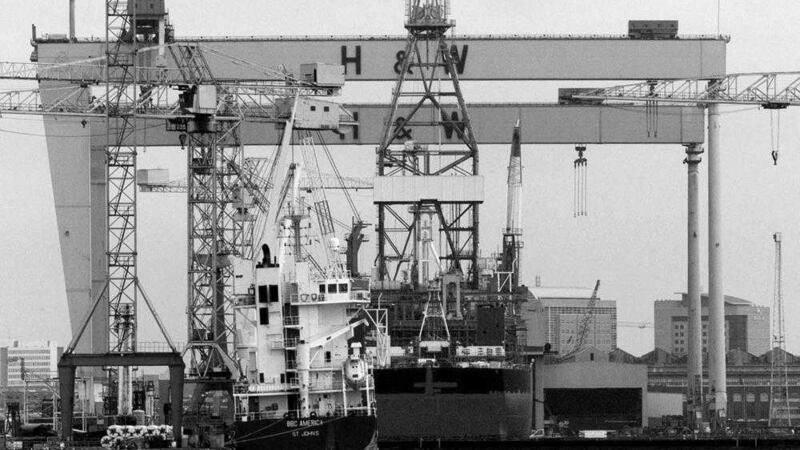THE bleak outlook for the Northern Ireland economy in 1986 is captured in government files released in Belfast in this week.
A report dated June 23 noted that the oil crisis of the early 1970s had a severe impact on the local economy.
In the period 1979-85 manufacturing output in the north declined by 7.5 per cent (compared with 5.2 per cent in Britain).
There were 460,000 people employed in Northern Ireland, a shrinkage of 11 per cent from 1979. In addition, 14,100 were employed in the RUC and prison service.
The report noted that the region’s traditional industries such as clothing, footwear, textiles and tobacco accounted for most of the collapse in manufacturing. Yet "the remaining rump of these traditional industries still accounted for 40 per cent of NI’s manufacturing base".
The size of the public sector was staggering, and Harland and Wolff (workforce 5,000) and Shorts (7,000), the north's two largest manufacturing companies, were both operating in "precarious world markets" and might suffer job losses.
Also, many indigenous industries were being supported by the Industrial Development Board.
The report was discussed at a meeting of NIO ministers and senior officials at Stormont Castle on June 15, with the head of the Northern Ireland Civil Service, Sir Ken Bloomfield, saying the north’s economic prospects were a cause for concern.
He highlighted the fact that "some 30 per cent of A-level students, normally the better ones" were entering university education outside Northern Ireland. Of these in 1984, 85 per cent did not return to the north.
Responding, Dr Brian Mawhinney, the NIO minister for education, noted that there would be a need to promote 12,000 jobs a year just to keep pace with unemployment.
Dr Rhodes Boyson, Minister of State, felt the tensions in the community after the signing of the Anglo-Irish Agreement had added to difficulties in attracting new industrial investment. He felt that Westminster was becoming impatient with Northern Ireland and there would be difficulties in persuading Whitehall that it was a special area.
Dr Brian Mawhinney, NIO minister, agreed that they should take a radical view.
"People needed to be aware of the consequences of their actions. At present they were insulated from the full effects of damaging business expectations because NI, as part of the fiscal union, could not devalue, reduce public expenditure or raise taxes. But decoupling from parity in wage levels and social security benefits, if it could be achieved, would introduce an element of realism."
While not disagreeing, Richard Needham, the NIO under-secretary, felt it would be difficult to move people away from parity in the social security field.
However, "people ought to be prepared for the political consequences of their political inaction and if present levels of unemployment were partly caused by the better-off opting out of the political process, then perhaps ways of paying consequences of their abstention would have to be sought."
He felt that differential wage levels raised interesting possibilities, especially in the health sector.
Summing up, the Secretary of State Tom King said there was a need to change perceptions and influence opinion in Europe and the United States.
He would fight again for the next Ministry of Defence order for which Harland and Wolff might bid but it was clear that the yard would never be the major employer of former years.
The meeting recorded a sobering conclusion:
1. The economic prospects were very bleak.
2. The manufacturing base was severely damaged and fragile.
3. There was a need for a radical re-think.








